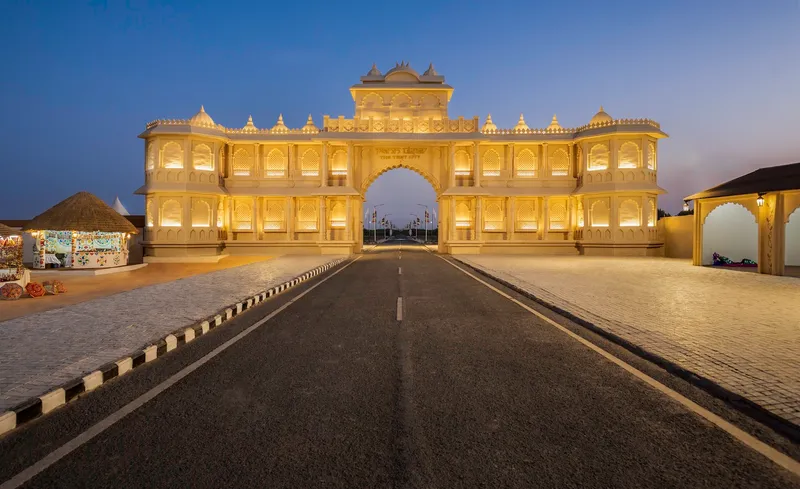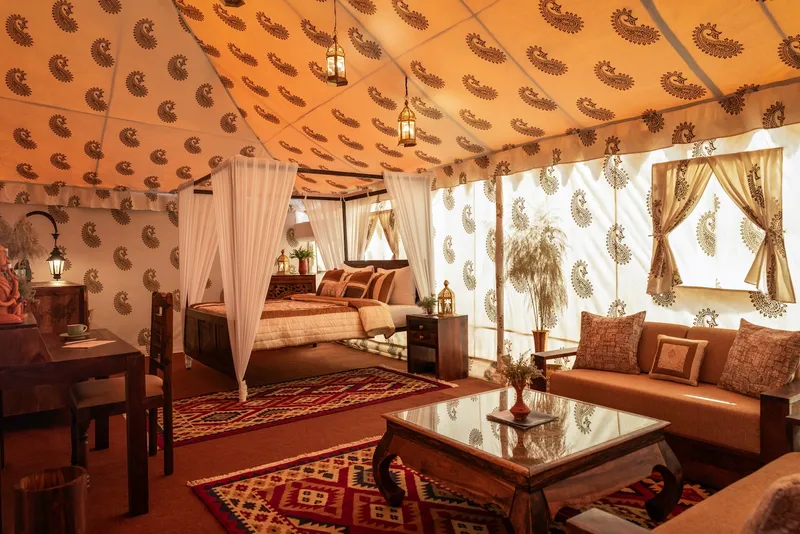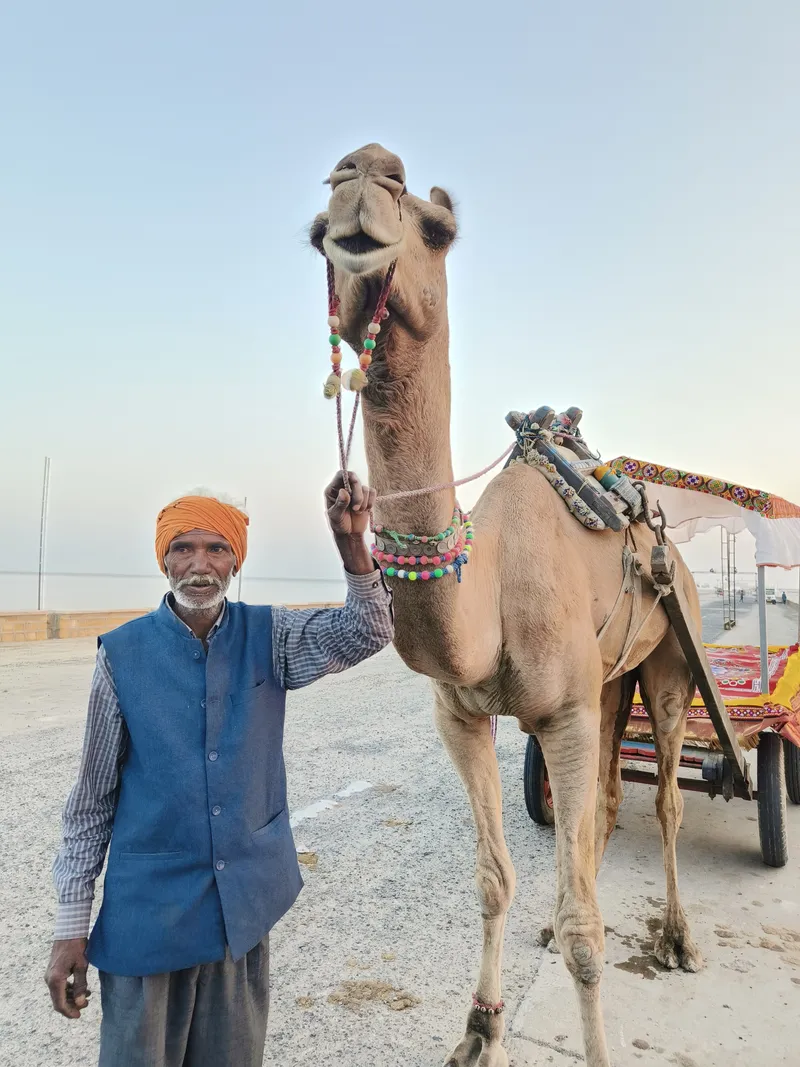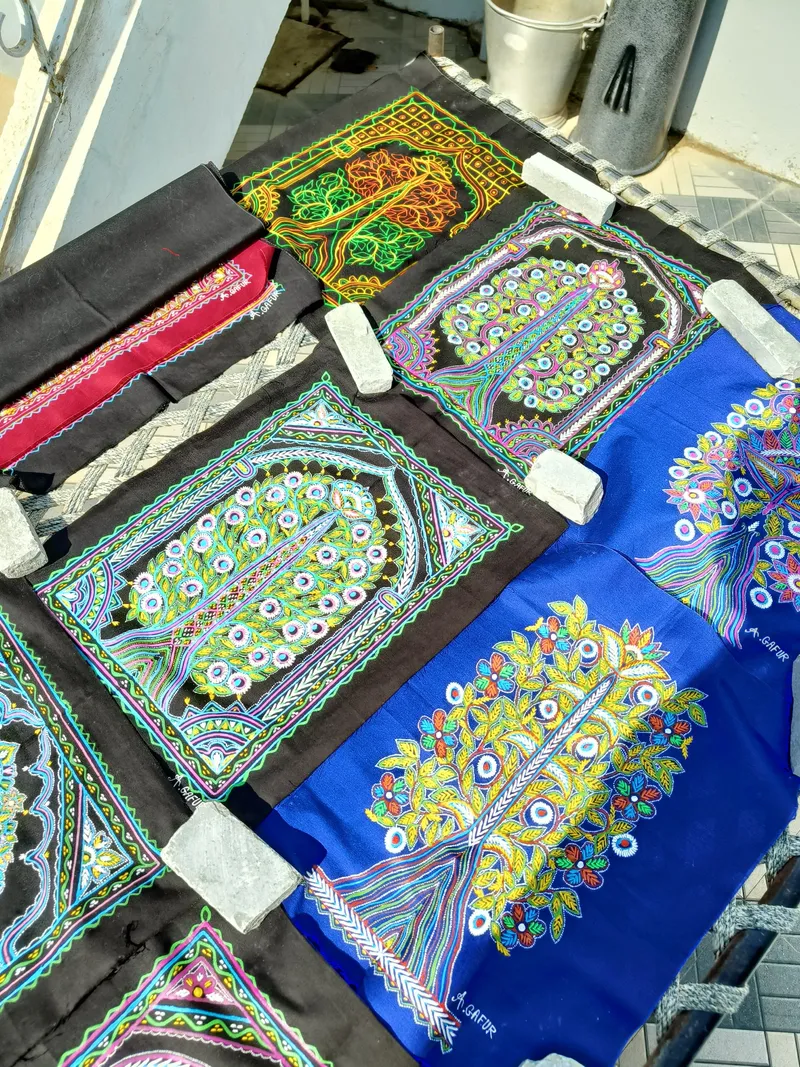Rann Utsav: A celebration of the marvels of nature and the vibrant culture of Kutch
Rann of Kutch is not just about salt marshes and sand, it’s also a showcase of the cultural diversity of the region.
Remember the journey is always more important than the destination.
Little did I know that these words by American essayist, poet and philosopher Ralph Waldo Emerson would define my trip to the Rann of Kutch.
The trip got off to a rocky start with my flight from Ahmedabad to Bhuj being cancelled. As I explored alternatives to reach my destination, an eight-hour road trip seemed to be the best bet.
The journey was more exciting than I had anticipated it to be. A chance encounter with a college batchmate on the trip resulted in us reliving moments from over a decade ago. As we immersed ourselves in nostalgia, the scenes outside changed quickly.
The wide roads of Ahmedabad soon gave way to rustic settings, replete with cowherds and their cattle. As we witnessed the remarkable transition, our chatty driver regaled us with trivia about the region.

Entrance to the Rann Utsav – The Tent City | Image source: The Photoarchitects
Along the way, he stopped the car and pointed to a framed image of a local deity on the road, with several plastic bottles in front of it.
Right next to the ‘makeshift temple’ was a plot filled with mounds of plastic.
“Since Kutch is a desert and there's water scarcity, water is the most precious thing one could offer the deity,” he explained.
While I may not agree with the idea of using plastic, it made me realise the significance of subcultures—something that stuck with me throughout the trip.
With this thought in mind, I eagerly awaited the next leg of my journey at Rann Utsav in Dhordo village.
A crash course in culture
It was past 8 pm when we reached the brightly lit Rann Utsav – The Tent City, run by hospitality group Evoke Experiences, in partnership with Gujarat Tourism.
After a long road trip, tiredness was palpable on our faces. But the vibrant setup at Tent City perked us up in an instant—the reception area was covered in traditional Lipai art, embedded with mirrors that looked like shimmering stars.

Darbari Suite at The Tent City | Image source: The Photoarchitects
Outside, the haat (marketplace) was brimming with local artisans selling their crafts.
Soon an electric buggy took us to our lavish tents spread across a vast township.
This township in Dhordo village is the heart of the 100-day Rann Utsav, which runs from November 11 to March 15. The 400-odd tents are well-appointed with all modern amenities.
Salt, sand and solitude

Image source: Geetika Sachdev
While the accommodation is no doubt luxurious, it’s the world outside that beckons visitors with its splendour. After all, you are amid the Great Rann of Kutch where white salty sand presents a spectacle beyond your imagination!
Sunrise and sunset are the best times to see the surreal landscape come to life.
Before you sink your feet into the salt marshes, you will come across camels, big and small, decked up in bright fabrics and beads, indicating that the desert isn't too far.
Interestingly, all the camels have names. Ours was Sanjay, who was fast-paced and ensured we got to the sandy region in no time.
As we walked deep into the desert right before sunset, time came to a standstill.
The pink-orange hues of the sun looked like brush strokes in the sky, extending all the way to the endless white expanse of the Rann.
While the place may be teeming with people, its vast expanse offers enough space for everyone—giving you the impression that you are all alone (even if there are couples recording videos or families sporting traditional costumes nearby).
Crafts and textiles
Rann Utsav–The Tent City provides several opportunities to discover the crafts and textiles of the region—Ajrakh, Lipai, bead work, patch work, brass work, and more.
Particularly interesting is the patchwork, often found in quilts and shawls. This craft is largely practised by the Ahir community (originally pastoralists), who are believed to have migrated from Sindh to Kutch. They call themselves the descendants of Lord Krishna.
Women embroider their own garments, and the use of colour is an indicator of their marital status. When their husbands pass away, they start wearing black.
Whether you want to shop for souvenirs or learn more about the crafts of Kutch, the artisans are more than happy to showcase their wares and share their knowledge.
The place also offers a plethora of local food options. I relished the Gujarati kadhi (it was on the sweeter side), ringan no oro (similar to baingan ka bharta) with bajra roti, and the generous fill of theplas and khandvi.
The cultural performances at Tent City are a real treat for the senses—from the dances of the Siddi community of Gujarat and Karnataka, with African roots, to shows featuring traditional instruments such as Nagara, Murli, Janjhra, Nagfani, Bhorrindo, and Damru.
Other treasures
While Rann Utsav is where most of the action is, we also visited a few neighbouring villages to discover wonderful treasures during our three-day trip.
An hour away from Dhordo is the Nirona village, where the traditional Rogan art is practised.

Rogan art in Nirona Village | Image source: Geetika Sachdev
Its custodian is Shri Abdul Gafur Khatri, who has kept this 400-year-old art alive, along with his family members.
It’s intriguing to see boiled castor oil wrap itself around the stylus or kalam, before it touches the textile delicately as the artist draws freehand motifs without tracing.
Each piece takes a week to over a few months, depending on its complexity.
The tree of life is Khatri’s most prominent work, which was gifted to former US President, Barack Obama, by Indian Prime Minister, Narendra Modi.
On our way to Nirona, we crossed the Banni grasslands where Banni buffaloes are found in abundance. They are starkly different from the buffaloes in the cities, with large coiled horns.
The Banni buffaloes are said to give 20-22 litres of milk every day!
On our return trip to Bhuj, we stopped at a dhaba to try mewa mithai and chai, both made with the milk of the Banni buffalo. The mithai was creamy, tasty and filling, marking a sweet end to the trip.
(The Rann Utsav is on until March 15, 2025.)
Edited by Swetha Kannan







